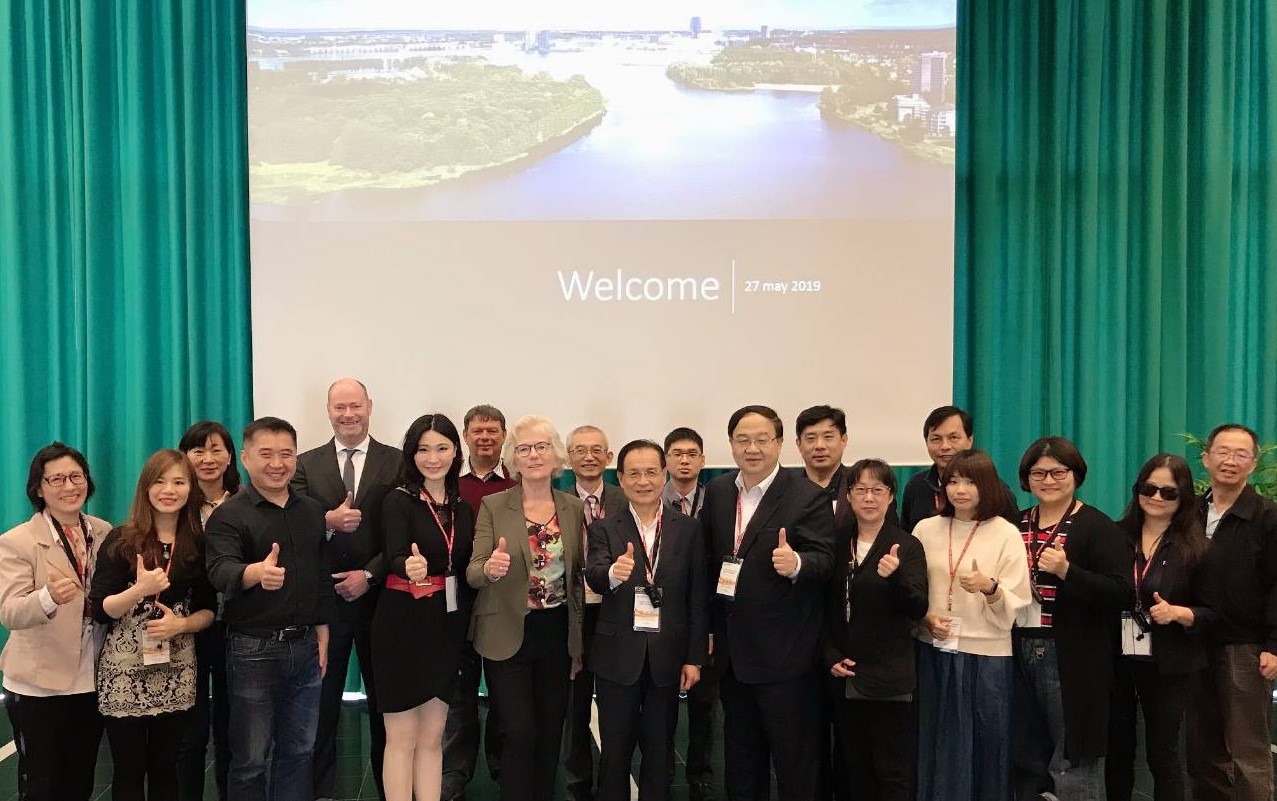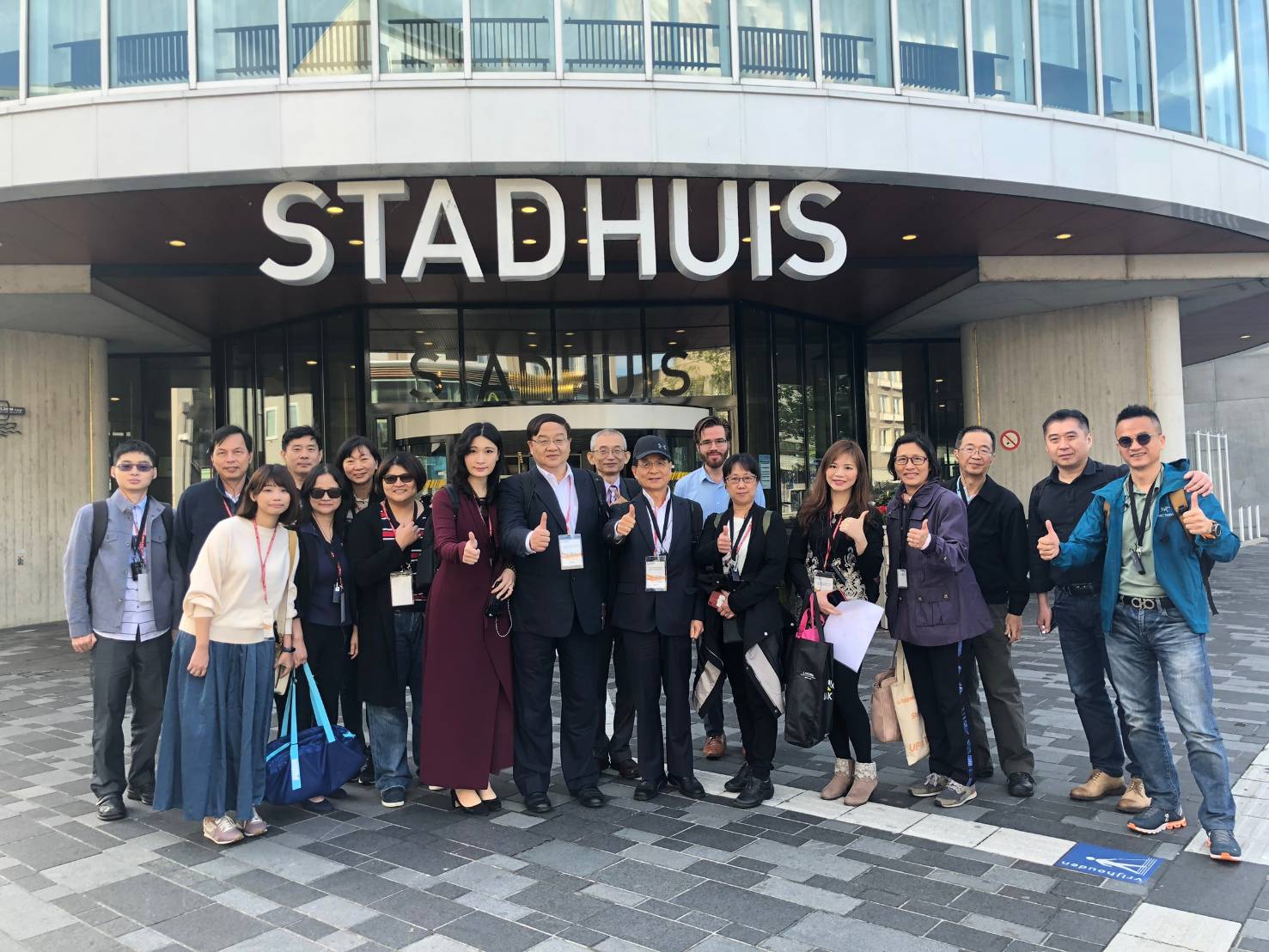The health improvement industry has been developing for many years in Europe. CDRI led a delegation to the Netherlands and Germany to introduce business models for assisting domestic health improvement companies on 5/27~6/6, inspecting the health industry related policies and the business model of innovative health enterprises. Chairman Tain-Tsair Hsu said he found that merely let the elderlies to "have normal lives" can make them happy after visited the dementia village and the elderly apartment in the Netherlands. This trip is also expected to uphold fairness, mutual benefit, tolerance and trust, learning and exchange information between the communities to promote the transformation and development of the industry.
According to CDRI, they are visiting Almere city and the government of Utrecht, and have the honour to be able to visit the world-famous, Hogeweyk, Residence Roosenburch established by Dr. Hans Becker, "De Toonladder", and "Humanitas Akropolis". In Germany, they are going to visit the innovative design service company "Noto Design" , “Vita Scale” for health monitoring and fitness assessment and application, innovative logistics model "MOIO", "Nuremberg Medical Center", "Johanniter Quartier Potsadm", Berlin mixed symbiosis community, and ITIR. The content covers the current situation of the health care industry in Europe, the government's response to policies and measures, the companies innovative business models, the application of emerging technologies, the design of human-oriented design, the application of care and rehabilitation equipment. In terms of official and academic aspects, we should comprehensively understand Europe's implementation of the policy of elderly care and the spirit of the companies’ innovative business models.
Chairman Hsu of the CDRI said that by visiting the innovative business model of the world's standard companies, he learned about the business philosophy, operating conditions, and the profit mechanism of the business model. He thought about how to extract its essence and combine it with the domestic enterprises themselves, establish an innovative business model suitable for Taiwan to develop a healthy ecosystem. Take the Dutch city of Amer as an example, transforming existing houses and providing medical resources suitable for the elderlies to help them live positively in their communities. At the same time, loneliness is one of the serious problems for the elderly. Therefore, they also provide more public communities to facilitate the movement of the elderly and provide various service policies to cooperate with other partners.
Chairman Hsu further pointed out the "people-oriented" dementia village in the Netherlands, the core of the overall design concept of the region emphasizes the design of self-resident, the medical treatment of life, the care of residents with medical integration without medical institutions. With the traditional 6~7 group living care model, with two professional nursing staffs, let them live like a normal family, including discussing dining ingredients, menus, participating in food processing and other activities they are interested in such as listening to opera, painting, sports, etc., making them live like healthy people. The living environment is designed in the same way as the outside streets. It is a large village with 27 different styles of communities. This design concept is worth learning in Taiwan. In South Korea, the proportion of elderly people with the same level of disability is 40% higher, which shows a significant difference in the effectiveness of people-oriented care in the Netherlands.
For the “Residence Roosenburch”, the key is "happiness", including: 1. Each person can follow his own will,; 2. Create topics that are discussed between the elderly, for example: through the establishment of a small zoo, raising pets; 3. Humane care, such as bar management, provide group activities such as singing, dancing. The ultimate goal is to provide a happy life with music and art; 4. "Yes culture" - means that every elderly has different needs, workers should coordinate the methods that can be applied.
Vice president Wang of CDRI said that creating an innovative business model is the key to sustainable business success. Faced with the impact of ageing and declining births, the issue of health and care for the elderly is a concern of the whole world. Taiwan must step up its footsteps, and the Business Research Institute will continue to play an important role in helping enterprises innovate and transform. In addition to vertical integration and information exchange of the industry, it is more valuable to enhance the domestic health care professional knowledge and service quality by observing the experience of European companies.

